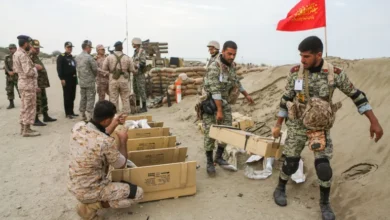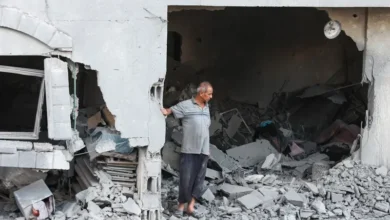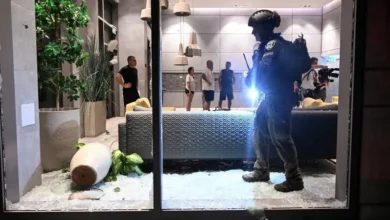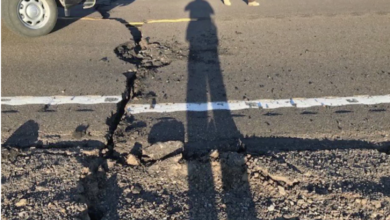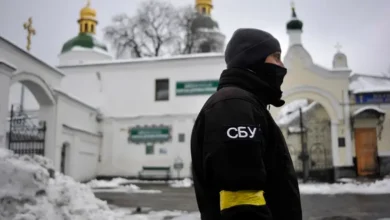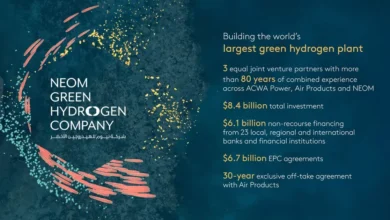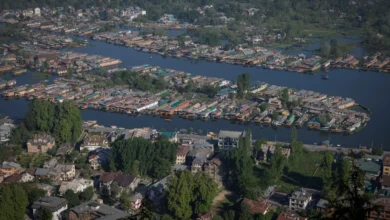OPCW blames Syria gov’t for 2018 chlorine gas attack in Douma
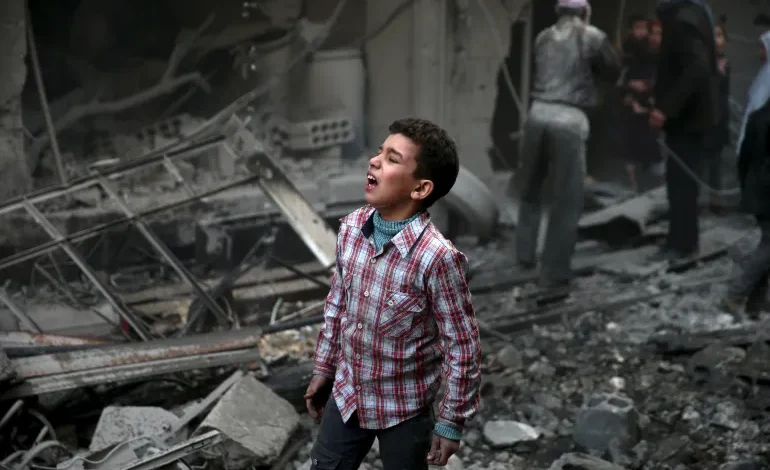
The global chemical weapons watchdog has concluded there are “reasonable grounds” to believe that Syrian government forces carried out a chemical weapons attack in a rebel-held town that killed dozens of people nearly five years ago.
On April 7, 2018, at least one helicopter of the Syrian army’s elite Tiger Forces unit “dropped two yellow cylinders containing toxic chlorine gas on two apartment buildings in a civilian-inhabited area in Douma, killing 43 named individuals and affecting dozens more”, inspectors at the Organisation for the Prohibition of Chemical Weapons (OPCW) said in a report released on Friday.
The watchdog said it came to its conclusions after analysing physical evidence, including 70 environmental and biomedical samples; 66 witness statements; and other verified data, such as forensic analyses and satellite images.
It noted that the “reasonable grounds” degree of certainty is the standard of proof consistently adopted by international fact-finding bodies and commissions of inquiry that investigate potential violations of international law.
“The world now knows the facts – it is up to the international community to take action, at the OPCW and beyond,” said the organisation’s director general, Fernando Arias.
“The use of chemical weapons in Douma – and anywhere – is unacceptable and a breach of international law,” he said.
The OPCW had already found Syrian government forces responsible for using the nerve agent sarin and chlorine barrel bombs on several occasions throughout the long-running conflict, which began with demonstrations against al-Assad in 2011 but soon widened into a full-on war between government forces and rebel factions.
Douma – which is in Eastern Ghouta, a sprawling suburb of Damascus – had become a stronghold of opposition fighters. Much of the area had been under siege by government forces or pro-government armed groups since 2013.
In 2019, OPCW investigators had determined that toxic chemicals had been used as a weapon in Douma the previous year, but they did not assign blame.
On Friday, the watchdog said one of the cylinders dropped by a Syrian air force Mi8/17 helicopter “hit the rooftop floor of a three-storey residential building without fully penetrating it, ruptured, and rapidly released toxic gas – chlorine – in very high concentrations, which rapidly dispersed within the building”, killing at least 17 women, 10 girls, nine boys and seven men.
The second cylinder hit the roof of another building that was at the time uninhabited, breaking into an apartment below. It “ruptured only partially, and started to slowly release chlorine, mildly affecting those who first arrived at the scene”, the report said.
